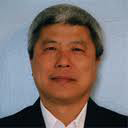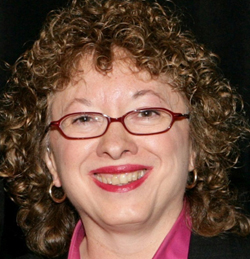When Jun Huangpu moved to the Main Line and founded his own consultancy serving the life science industry, the Harvard Business School graduate chose to name it after the waterway that snaked past his home just outside of West Philadelphia. Cobbs Creek Healthcare is only one example of how Huangpu, who came from his native China some 20 years ago to complete his Ph.D in biology at Bowling Green State University, was intent on connecting with his new home – and clients.
Cobbs Creek Healthcare boasts services that help take new therapies and technologies from the laboratory to the marketplace. Huangpu’s extensive experience in the lab during his education, in sales while working for Denville Scientific and Sigma-Aldrich in Boston, in strategy with AstraZeneca and IMS Health in suburban Philadelphia, and in commercialization with Prism Pharmaceuticals in nearby King of Prussia gives clients a complete solution that has staying power for a product’s entire lifecycle.
Huangpu is also active in the community. He co-founded and serves as Executive Director for the Wynnewood-based Main Line Chinese Culture Center, which aims to create a stronger Greater Philadelphia by providing dynamic Chinese language and culture education to people of all ages and cultural backgrounds. The organization just put on its annual Chinese New Year Gala, the largest of its kind in the Philadelphia suburbs, hosting a diverse crowd of 1,000 at Great Valley High School in Malvern.
It’s the Year of the Snake, and as Huangpu is quick to point out, that’s his year. So with two years of doubling his client base and sales, expect more big things out of this founder.
What was the inspiration behind Cobbs Creek Healthcare?
The pharmaceutical, biotech and medical device business models needed to improve and adjust with science, technology and legal and political changes. Our mission is to help the industry adjust to that change. From my unique perspective as a research scientist and a salesperson, as well as my understanding of what’s going on with science and technology, I believe we can add value to society by finding a better, quicker, and less expensive way to bring innovation from laboratory to the market.
What was the toughest part of getting the company off the ground?
Finding the customers. An immigrant speaking broken English is not the best way to sell. At the same time, I didn’t have enough connections and I was relatively new to the area. The key is to be persistent and don’t ever get up.
Did you take advantage of any resources to help you through those challenges?
The Greater Philadelphia Chamber of Commerce organizes very meaningful networking events for entrepreneurs that helps connect them to lenders and service providers.
What’s one thing you learned at Harvard Business School you try to put into practice every day?
You’ve got to look at the big picture, think strategically, and work hard on the details and groundwork. But always keep your head up and looking at the big picture.
How is MLCCC making a difference?
Immigrants should actively participate in and contribute to society and be part of the larger community, not just in the margins. That’s what MLCCC is about, to share Chinese culture with everybody to make the region stronger. I’m a big believer in the U.S. Constitution. This country gives everybody an opportunity. People need to give back. I have devoted a lot of time and effort to MLCCC to give back.
What’s one example of a technology you helped bring to market?
We helped a technology company that created the first blood test to help diagnose Schizophrenia. We helped the company identify who needs their product the most and how to get the product to them. Is it a wealthy suburban patient or a poor inner city patient? We find the test has much higher impact for patients of community based mental clinics, as patients often won’t come back for follow-up consultation that is reguired to make a firm diagnosis of Schizophrenia. This test can help confirm the disease condition and get patient on treatment early. In order to make any technology successful, it must find and demonstrate its value in the marketplace, not just for technology’s sake. You need commercial success to sustain innovation.
— by Joe Petrucci


http://www.cobbscreekhealthcare.com/
PO Box 94 Wynnewood, PA 19096


